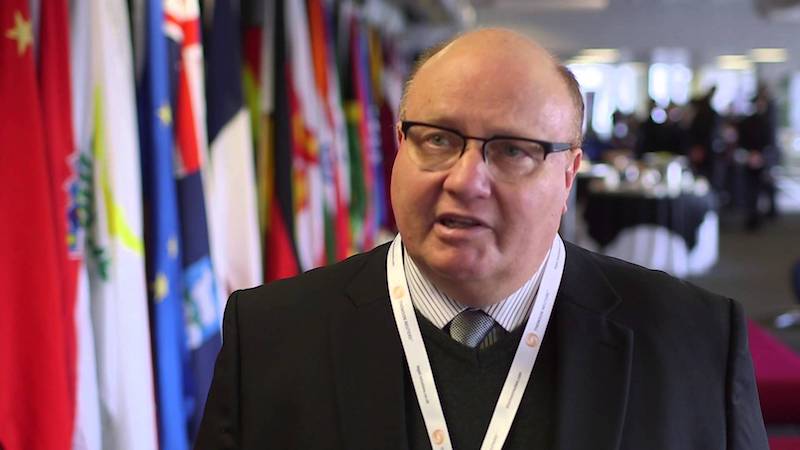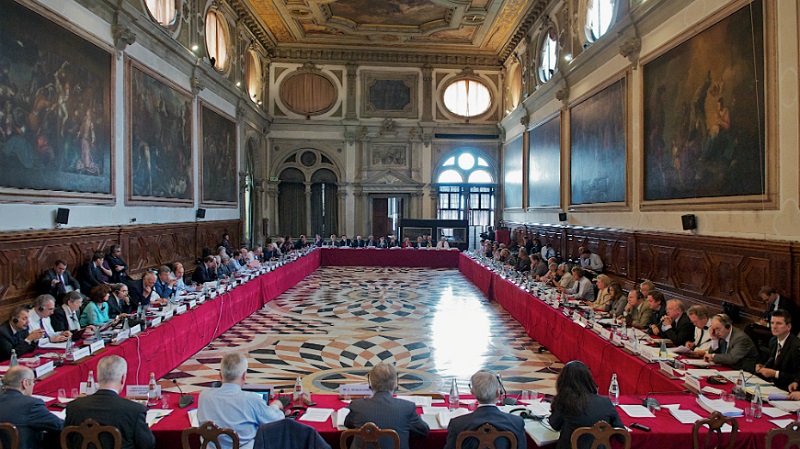If first impressions count, then the first impression of last week’s 16-page letter to the Venice Commission by the Justice Minister would have to be its spots of poor English.
It’s symptomatic of larger flaws in the import of the letter: the sense it gives is of haste and gloss, and the realisation that this reform package will not tackle Malta’s compromised rule of law.
Following the Justice Minister’s letter, it’s now the turn of the Council of Europe’s Venice Commission to provide its opinion to the Maltese government.
The Commission had made its recommendations in December 2018. In the current round, it’s engaged in analysing the government’s counter proposals after talks were held between the two parties earlier this month.
A sector by sector analysis of the government’s proposals shows the government has put forward a hotchpotch of inadequate rule of law reforms.
Judicial appointments
Changing the system of judicial appointments to ensure judicial independence is the central aspect of the reform.
The judiciary has been weakened by partisan appointments, which became more brazen after the change of the Party in government in 2013. So the idea now is to limit the Prime Minister’s influence on appointments.
The Venice Commission recommended a system in which specific judicial vacancies are filled through a system that includes a call for applications, an assessment and ranking of candidates by a Judicial Appointments Committee, and a recommendation made to the President.
The government prefers a rolling call for applications and a Committee that reports on the suitability of three shortlisted candidates to the President, who would then make a choice.

The judiciary in Malta.
A rolling call for applications does not promote specialisations in court – specialisation makes decisions more learned and efficient. Besides, if the Committee has to provide assessment briefs on each of the three shortlisted candidates, why not have the Committee make the choice?
Off-the-record discussions with key politicians reveal anxiety among the political class about judicial activism – hence the eagerness to retain some control on whom to appoint.
An alternative way of tackling this would be through the power of veto, allowing the President to judiciously veto a nominee for clear and significant reasons of public policy or public interest.
Another way would be to expand membership of the appointments committee to include, among others, retired Chief Justices – the latter was a proposal made by NGO Repubblika.
Another divergence is the government’s preference to appoint the Chief Justice by a two-thirds vote in parliament. It’s not clear why a choice made by politicians would be superior to a choice made by the appointments committee – after all, the Chief Justice has no political or public role.
The government’s latest proposal also oddly puts the State Advocate on the appointments committee. This jars with the jurisprudence of the European Court of Human Rights (ECHR) which, in the 2013 case Volkov vs Ukraine, suggested that the presence of litigation lawyers on appointment or sanctions committees impinges on judicial impartiality.
Judicial removal
The Maltese government’s letter is not clear on this point. Although any sanction short of removal is left to the Commission for the Administration of Justice – the highest justice organ tasked with judicial appointment, as well as the sanction of errant judiciary and lawyers – it appears that parliament would retain final vote on impeachment.
This may be problematic within the context of the Volkov case – he won the case largely because parliament had voted for his impeachment.
For the same reason, it is incomprehensible that the government is seeking to substitute the Attorney General with the State Advocate on the Justice Commission. The State Advocate is involved in litigation and his presence jars with the principle that any lawyer who appears for any party in court cannot be present in organs involved in the removal of the judiciary.
The Attorney General’s prosecuting power
Last July’s separation of the State Advocate, who is the State lawyer, and the Attorney General, who prosecutes criminals, fulfilled one of the recommendations of the Venice Commission.

Attorney General Peter Grech
The government is now planning to go further by having all crimes punishable by more than two years imprisonment to be prosecuted by the Attorney General, instead of the police. This is expected to improve the quality of prosecutions.
The government is also committing to provisions in the law to empower victims of crime to challenge the Attorney General’s nolle prosequi – the non-initiation or dismissal of court proceedings. This fulfils another recommendation.
Yet there is no such possibility in corruption cases. Since there is no identifiable victim in corruption cases, then any failure by the Attorney General to initiate prosecutions on corruption or terminate such prosecutions cannot be challenged by anyone.
Permanent Commission Against Corruption
This organ has been so ineffective that the Venice Commission recommended its dissolution.
The government is now seeking to tinker with it in two ways: to have the President, instead of the Prime Minister, directly appoint its chairperson; and to have its reports sent directly to the Attorney General, instead of the Minister.
But, the Cabinet – which would after all simply endorse whatever the Prime Minister puts on the table – will still get to appoint its two other members.
Moreover, the gap in the prosecuting corruption cases mentioned above would neutralise any gain in having reports sent to the Attorney General. That is because the Prime Minister still retains final discretion in selecting whom to appoint as Attorney General, and corruption cases may still end up gathering dust at the Attorney General’s office unless civil society is empowered to judicially prod the Attorney General.
The Ombudsman
The government said it will implement this recommendation by enshrining the Ombudsman’s appointment and dismissal in the Constitution and allowing parliament to debate his annual reports.
This does not address what has now become a habit: systematic indifference to the Ombudsman’s recommendations by government entities.
Prime Ministerial powers
The Venice Commission had recommended divesting some of the power concentrated in the hands of the Prime Minister, particularly when it comes to appointments. The government is now seeking to shift some appointing responsibilities onto the President and others onto the Cabinet. In reality, the Cabinet is likely to simply endorse or rubber stamp the names put to it by the Prime Minister.

Prime Minister Robert Abela with his predecessor Joseph Muscat.
Permanent Secretaries
The government’s idea is for Permanent Secretaries to be chosen by the Public Service Commission on predefined criteria, instead of the Prime Minister.
This would change the present situation in which these key officials, who are supposed to remain above partisan sensibilities, owe their job to their political master, the Prime Minister.
There’s a catch: The letter says that the Principal Permanent Secretary would be chosen by the Cabinet – in other words, the Prime Minister – and that the Public Service Commission would in its choice of any of the other Permanent Secretaries give “due consideration” to recommendations of the Principal Permanent Secretary.
This would largely preserve the present situation by allowing the Prime Minister to influence or control who gets appointed Permanent Secretary through his proxy, the Principal Permanent Secretary.
Persons of Trust
The infamous persons of trusts have proliferated since Labour came to power in 2013. They are now thought to number some 700, and include drivers and gardeners. The Venice Commission recommended limiting persons of trust to personnel who assist Ministers and Parliamentary Secretaries to implement the political programme, as well as to exercise power.
The government is now seeking to implement this recommendation through legislation but wants to add consultants to Ministers and Parliamentary Secretaries to the list. It’s unclear why consultants have to be persons who enjoy the Minister’s personal trust – no camaraderie is needed for professional advice.
The President
The Justice Minister says in his letter that the process of assigning greater executive power to the President – to make some appointments directly – would be decided “within the parameters of the [ongoing] Constitutional Convention”.
No time frame is given, and no details on how appointments vested in the President by this package of reforms – including judicial appointments – would be exercised in the interim.
The powers of the Constitutional Court
Malta is one of the few democratic countries in the world where a law found unconstitutional by the Constitutional Court is not automatically nullified.
Retired human rights Judge Giovanni Bonello has repeatedly denounced this practice, and the Venice Commission recommended bringing Malta in line with the world on this point.
In his letter, the Justice Minister merely writes of “endeavours” being made to amend laws to achieve convergence with Constitutional Court judgments. He justifies his stance by saying that if Malta had to adopt the Venice Commission recommendation – known in law as erga omnes – it could lead to “possible legal uncertainty.”
That’s contrary to the views of senior justice experts, including Judge Emeritus Bonello, who has in the past said that the Maltese oddity in this regard leads to “uncertainty of the law” and that this is a “carnival that only happens in Malta.”
Experts maintain it’s precisely the need for ‘certainty of the law’ that calls for these changes, and that the Justice Minister is turning the argument upside down.
In his book Misunderstanding the Constitution, Bonello argued that the Constitution already provides for any law deemed unconstitutional by the Constitutional Court to become void. He goes on to accuse the highest court of “impotence” and “abdication” in allowing the present anomaly to subsist.












